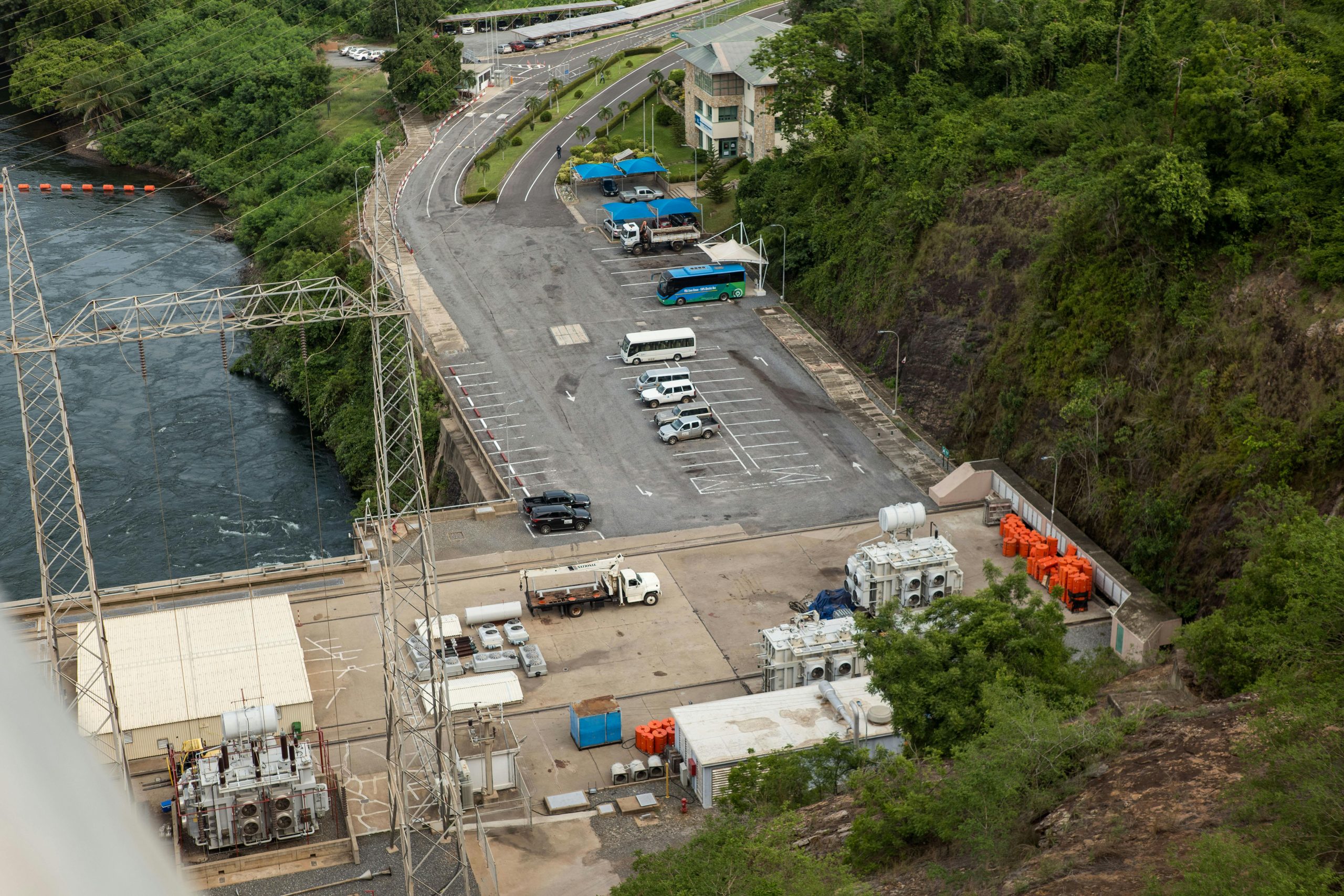Natural Resources and Solid Minerals in Nigeria and Their Locations
Nigeria is richly blessed with abundant natural resources and solid minerals scattered across its 36 states and the Federal Capital Territory (FCT). These resources play a significant role in the country’s economic growth, employment opportunities, and industrial development. From petroleum to precious stones, Nigeria’s diverse natural resource base remains a major asset waiting to be fully harnessed.
In this article, we will explore the major natural resources and solid minerals in Nigeria, their uses, and the states where they can be found.

🌍 What Are Natural Resources?
Natural resources are raw materials derived from the Earth that are used for economic gain. These include renewable resources like forests and water, and non-renewable ones like minerals, oil, and gas. Nigeria is especially known for its solid minerals and crude oil reserves.
⛏️ List of Major Solid Minerals and Natural Resources in Nigeria and Their Locations
1. Crude Oil and Natural Gas
-
Uses: Fuel, energy, petrochemicals, lubricants
-
States: Rivers, Bayelsa, Delta, Akwa Ibom, Edo, Lagos, Imo, Abia, Ondo
-
Overview: Nigeria is the largest oil producer in Africa and has one of the largest gas reserves in the world. The oil and gas industry contributes over 90% of Nigeria’s export earnings.
2. Coal
-
Uses: Power generation, cement production, steel manufacturing
-
States: Enugu, Kogi, Benue, Gombe, Nasarawa, Ebonyi
-
Overview: Nigeria has large coal reserves, especially in Enugu State, known as the “Coal City.” However, coal remains underutilized in the country.
3. Limestone
-
Uses: Cement production, construction, agriculture
-
States: Ogun, Cross River, Benue, Sokoto, Edo, Kogi
-
Overview: Limestone is critical for Nigeria’s thriving cement industry. Dangote Cement and other firms depend heavily on these deposits.
4. Gold
-
Uses: Jewelry, electronics, financial assets
-
States: Zamfara, Niger, Osun, Kaduna, Kebbi, Kogi
-
Overview: Artisanal gold mining is widespread, especially in Zamfara and Osun. Efforts are ongoing to formalize and regulate the industry to reduce illegal mining and environmental damage.
5. Iron Ore
-
Uses: Steel production, construction
-
States: Kogi, Enugu, Niger, Bauchi, Nasarawa
-
Overview: Nigeria has vast iron ore deposits, especially in Itakpe, Kogi State. It’s essential for the production of steel, which is vital to infrastructure development.
6. Tin
-
Uses: Soldering, plating, alloy production
-
States: Plateau, Bauchi, Nasarawa
-
Overview: Tin mining was one of the earliest mining activities in Nigeria. Jos, Plateau State, was once the world’s leading producer of tin.
7. Lead and Zinc
-
Uses: Batteries, paints, alloys, galvanized products
-
States: Ebonyi, Niger, Zamfara, Enugu, Taraba, Cross River
-
Overview: Nigeria’s lead and zinc reserves are estimated to be over 10 million tons, and the export potential is high if properly harnessed.
8. Gypsum
-
Uses: Plaster of Paris (POP), cement, wallboards
-
States: Adamawa, Gombe, Borno, Bayelsa, Sokoto
-
Overview: Gypsum is widely used in the construction industry and Nigeria has sufficient reserves to support local manufacturing of POP and drywall.
9. Granite
-
Uses: Road and building construction, monuments
-
States: Ekiti, Ogun, Plateau, Kaduna, Cross River
-
Overview: Granite is an essential resource in Nigeria’s construction industry, with many local quarries supplying it across the country.
10. Marble
-
Uses: Flooring, tiles, decorative purposes
-
States: Kogi, Oyo, Abuja, Edo
-
Overview: Marble deposits in Nigeria are found in commercial quantities and are used extensively in construction and decor.
11. Bitumen
-
Uses: Road construction, waterproofing
-
States: Ondo, Ogun, Edo, Lagos
-
Overview: Nigeria has one of the largest bitumen deposits in the world, yet it’s largely untapped. It can reduce dependence on imported asphalt.
12. Salt
-
Uses: Food preservation, seasoning, industrial uses
-
States: Ebonyi, Abia, Akwa Ibom, Benue
-
Overview: Nigeria has both rock salt and brine salt resources. Ebonyi State is especially known for its large salt lakes.
13. Kaolin
-
Uses: Ceramics, pharmaceuticals, paints, paper
-
States: Kogi, Katsina, Ogun, Borno, Bauchi
-
Overview: Nigeria has kaolin reserves of over 3 billion metric tons, ideal for various industrial applications.
14. Phosphate
-
Uses: Fertilizer production, agriculture
-
States: Sokoto, Ogun, Edo
-
Overview: Nigeria imports a significant amount of fertilizer yearly, yet local phosphate mining could reduce this dependency.
15. Barite
-
Uses: Drilling mud (oil & gas), glass, rubber
-
States: Cross River, Benue, Taraba, Nasarawa
-
Overview: Barite is a key mineral in the oil industry and Nigeria is working on reducing its import by investing in local production.
16. Talc
-
Uses: Cosmetics, pharmaceuticals, ceramics
-
States: Niger, Osun, Kogi, Kaduna
-
Overview: Nigeria is said to have over 40 million tonnes of talc deposits, yet commercial exploitation is still limited.
17. Silica Sand
-
Uses: Glass manufacturing, casting, ceramics
-
States: Delta, Lagos, Plateau, Bayelsa
-
Overview: Nigeria’s silica sand is pure and abundant, suitable for industrial and commercial use.
🗺️ Summary Table of Minerals and Their Locations
| Mineral | States Found |
|---|---|
| Crude Oil & Gas | Rivers, Bayelsa, Delta, Akwa Ibom, Lagos, Imo, etc. |
| Coal | Enugu, Kogi, Benue, Ebonyi |
| Limestone | Ogun, Sokoto, Benue, Cross River, Kogi |
| Gold | Zamfara, Niger, Osun, Kebbi |
| Iron Ore | Kogi, Enugu, Niger, Bauchi |
| Tin | Plateau, Bauchi, Nasarawa |
| Lead & Zinc | Ebonyi, Niger, Enugu, Zamfara |
| Gypsum | Sokoto, Gombe, Adamawa |
| Granite | Ogun, Plateau, Ekiti, Kaduna |
| Marble | Kogi, Oyo, Abuja, Edo |
| Bitumen | Ondo, Lagos, Edo, Ogun |
| Salt | Ebonyi, Akwa Ibom, Abia |
| Kaolin | Kogi, Katsina, Bauchi |
| Phosphate | Sokoto, Ogun, Edo |
| Barite | Cross River, Benue, Taraba |
| Talc | Niger, Kogi, Osun, Kaduna |
| Silica Sand | Delta, Lagos, Bayelsa, Plateau |
🏗️ The Economic Importance of Nigeria’s Mineral Resources
Nigeria’s solid minerals sector holds great potential for diversification of the economy. With the ongoing government efforts to reduce dependency on oil revenue, attention is shifting toward solid minerals.
Key Benefits:
-
Job creation for artisans and local miners
-
Industrialization through raw material sourcing
-
Revenue generation through exports
-
Infrastructural development through local cement, steel, and construction industries
-
Foreign investment through public-private partnerships
🚧 Challenges Facing the Solid Mineral Sector
Despite the abundance of natural resources, Nigeria still faces several issues in harnessing them:
-
Illegal mining and smuggling
-
Lack of modern mining equipment
-
Poor infrastructure and roads in rural mining zones
-
Insecurity in certain mining areas
-
Environmental degradation due to unregulated activities
✅ Conclusion
Nigeria is a land of untapped wealth, richly endowed with natural and solid mineral resources. From gold to oil, limestone to coal, nearly every state in the country holds one form of economic mineral or another. For the country to fully benefit, there must be increased investment, transparency, and sustainable practices in the mining sector.













Add Comment